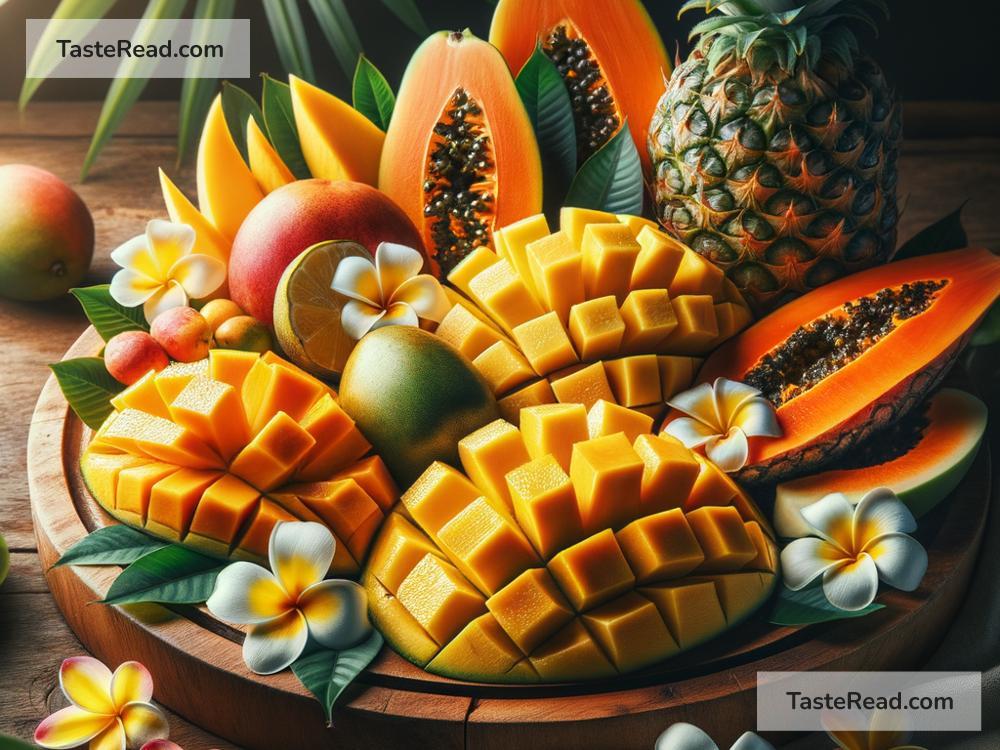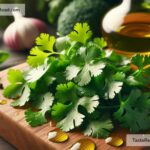The Role of Volatile Compounds in the Aroma of Tropical Fruits
Have you ever bitten into a juicy mango or enjoyed the sweet scent of a ripe pineapple? One of the most enjoyable things about tropical fruits is their aroma—those irresistible smells that draw us in and make our mouths water. But have you ever wondered why these fruits smell so good? The answer lies in tiny chemical molecules called volatile compounds.
In this article, we’ll explore what volatile compounds are, how they create the delicious aromas of tropical fruits, and why they play an important role in our everyday enjoyment of food. Don’t worry—we’ll keep it simple!
What Are Volatile Compounds?
Volatile compounds are tiny molecules that easily evaporate into the air, even at room temperature. When you smell something, like a ripe banana or a fresh coconut, what’s actually happening is that volatile compounds from the fruit travel into the air and reach your nose. Your brain then interprets these compounds and translates them into a specific scent.
There are hundreds, sometimes thousands, of volatile compounds in each fruit. They can vary greatly in type and concentration depending on the fruit and its ripeness. These molecules are responsible for the unique aroma that gives each tropical fruit its signature smell—whether it’s the floral fragrance of a mango or the funky yet sweet aroma of durian.
How Do Volatile Compounds Create Aroma?
Volatile compounds work together like an orchestra to create the overall scent of a tropical fruit. Just like a music piece requires multiple instruments, a fruit’s aroma is a result of the combination of various individual compounds. Some compounds may smell fruity, while others might be sweet, sour, spicy, or even earthy. The way these compounds mix and interact forms the unique perfume you associate with each fruit.
For example, the aroma of a ripe pineapple is largely influenced by compounds like ethyl butanoate and methyl hexanoate, which give it a sweet and fruity smell. On the other hand, a mango’s scent is often linked to compounds such as linalool (which smells floral) and myrcene (which smells fruity with a hint of spice).
Ripeness also plays a big role. When a fruit ripens, its volatile compounds change. Many of these compounds are produced naturally as the fruit breaks down its sugars, acids, and other substances. That’s why an unripe fruit often smells different (or barely has a smell at all) compared to when it’s fully ripe. A ripe banana has a distinct “banana scent” because of compounds like isoamyl acetate. But while it’s still green, those compounds are less active, resulting in a much fainter aroma.
Tropical Fruits and Their Star Volatile Compounds
Let’s take a closer look at a few popular tropical fruits and the volatile compounds that make them smell so good:
-
Mango: Mangoes are one of the most loved tropical fruits, and their scent is a delightful mix of floral, fruity, and slightly spicy notes. Their aroma comes from compounds like terpenes, which are common in flowers. One key terpene, linalool, gives mangoes a sweet, flowery smell.
-
Pineapple: Pineapple’s aroma is often described as tropical and juicy, and it’s driven by compounds like ethyl butanoate and methyl hexanoate, which provide sweet, fruity notes.
-
Banana: Bananas owe their classic smell to compounds such as isoamyl acetate, sometimes called the “banana oil.” This compound is so distinctive that it’s often used in artificial flavorings to replicate the banana scent!
-
Durian: Durian is known as the “king of fruits” in Southeast Asia, but its smell is controversial—some people love it, while others find it overpowering! Durian’s strong scent comes from sulfur-containing compounds like ethyl propionate, which contribute to its pungent, sweet aroma.
-
Coconut: Coconut’s mild yet nutty aroma comes from compounds like lactones, which lend it a creamy and fruity smell.
Why Are Volatile Compounds Important?
Volatile compounds are much more than just a source of great smells. For fruits, these compounds serve as natural signals to attract animals (including humans) to eat them. When animals eat the fruits, they often spread the seeds, helping plants reproduce. In this way, aroma plays a key role in the fruit’s survival and evolution.
For humans, volatile compounds are essential for food enjoyment. Our sense of smell greatly influences taste, so a fruit’s aroma enhances its flavor. This is one reason pineapples and mangoes taste even better when they’re perfectly ripe—they’re full of active volatile compounds that smell amazing.
Food scientists also study volatile compounds to improve the cultivation and storage of tropical fruits. Understanding which compounds are responsible for aroma helps growers focus on factors like ripening and post-harvest handling to ensure fruits smell and taste their best when they reach consumers.
Conclusion
Volatile compounds are the unsung heroes behind the wonderful aromas of tropical fruits. From sweet mangoes to fragrant coconuts, these tiny molecules create the unique smells that make these fruits so irresistible. Next time you enjoy a tropical fruit, take a moment to appreciate the science behind its mouthwatering aroma—it’s nature’s way of delivering a flavorful experience.
So, whether you’re slicing open a ripe pineapple or savoring a durian, let your sense of smell guide your taste buds on an unforgettable tropical journey!


